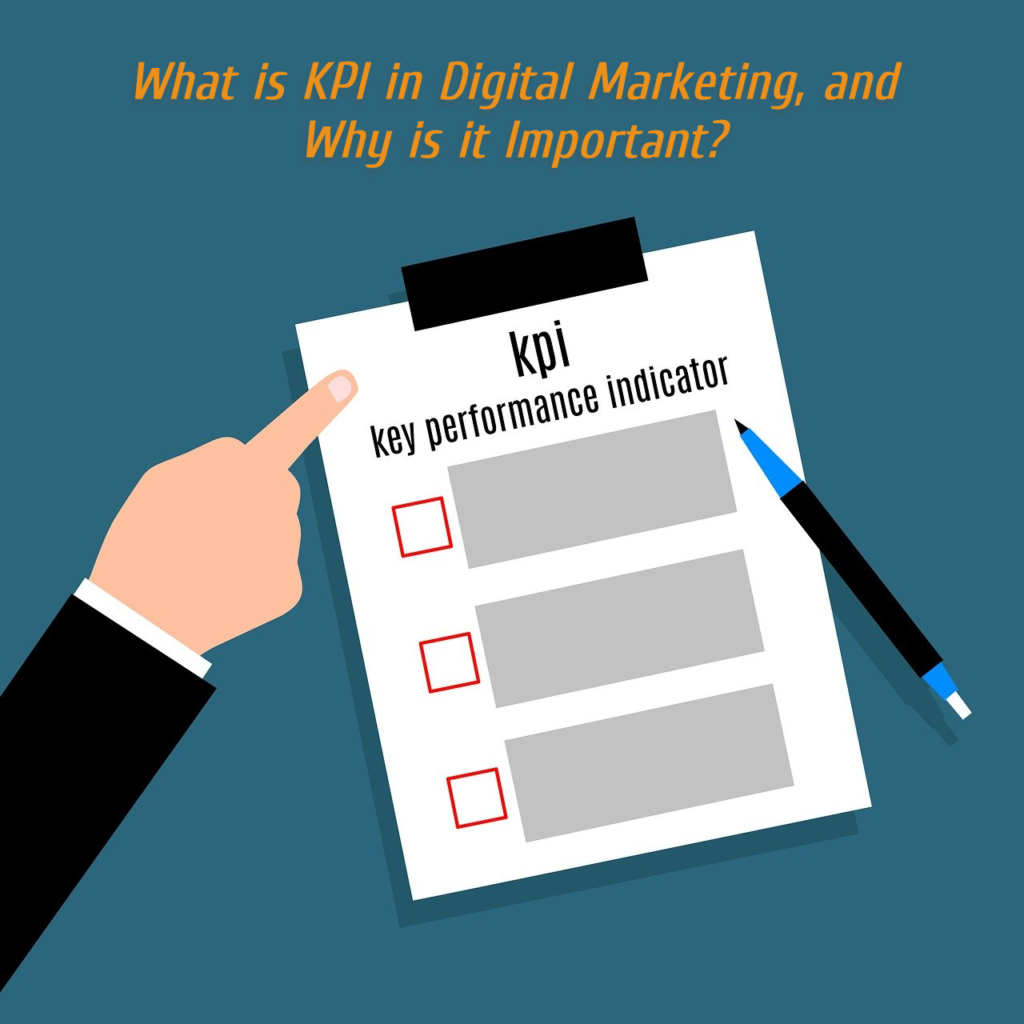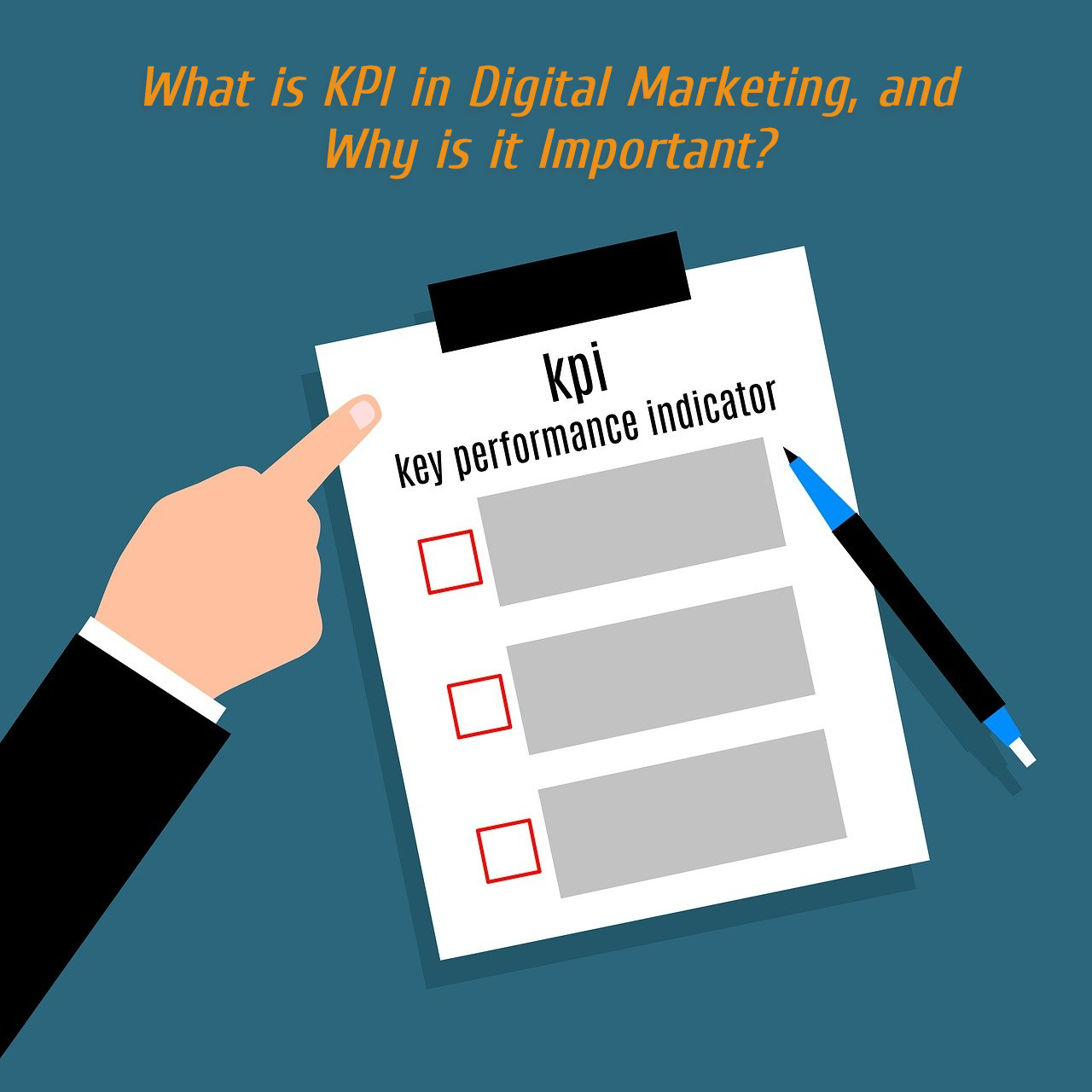What is KPI in Digital Marketing, and Why is it Important?
Key Performance Indicators (KPIs) in digital marketing are measurable metrics that help businesses assess the effectiveness of their online marketing strategies. These metrics provide valuable insights into the performance of various digital marketing efforts and can guide decision-making. KPIs are essential for several reasons:
- Measuring Success: KPIs provide a tangible way to measure the success of digital marketing efforts. Without KPIs, it’s challenging to determine whether your strategies are effective or not.
- Data-Driven Decision Making: KPIs offer quantitative data that can guide decision-making. Digital marketers can use this data to make informed choices about campaign adjustments, resource allocation, and overall strategy.
- Goal Alignment: KPIs help align marketing efforts with business objectives. By setting and tracking KPIs, digital marketers ensure that their strategies are directly contributing to the achievement of the company’s goals, whether it’s increasing sales, brand awareness, or website traffic.
- Performance Benchmarking: KPIs allow marketers to benchmark their performance over time. This enables them to assess whether they are making progress, maintaining consistency, or experiencing declines in performance.
- Resource Optimization: Tracking KPIs can help in the efficient allocation of resources. If specific marketing channels or campaigns are not delivering the expected results, marketers can reallocate resources to more successful areas.
- ROI Assessment: KPIs play a pivotal role in evaluating the return on investment (ROI) for marketing activities. Marketers can measure the revenue generated in relation to the cost of marketing, allowing them to make financial decisions accordingly.
- Continuous Improvement: Regularly tracking and analyzing KPIs fosters a culture of continuous improvement. Marketers can identify areas that need enhancement and work on optimizing their strategies over time.
- Adaptation to Market Changes: KPIs can highlight shifts in market dynamics. If a particular KPI starts to decline, it may signal changes in consumer behavior or competition, prompting marketers to adapt their strategies accordingly.
- Accountability: KPIs provide a basis for accountability. Team members and stakeholders can see clearly whether goals are being met, which encourages responsibility and motivation within the marketing team.
- Effective Communication: KPIs facilitate effective communication within an organization. When everyone is aligned on the same metrics, it’s easier to convey the impact of marketing efforts to other departments and stakeholders.
- Identification of Weaknesses and Strengths: KPIs can reveal both the weaknesses and strengths of marketing strategies. Marketers can use this information to address weaknesses and leverage strengths in future campaigns.
- Customer Insights: Some KPIs, like conversion rate and customer acquisition cost, can offer insights into customer behavior and preferences, helping marketers tailor their strategies to better meet customer needs.
Common KPIs in digital marketing include:
- Website Traffic: Measuring the number of visitors to your website.
- Conversion Rate: Tracking the percentage of website visitors who take a desired action, such as making a purchase or filling out a contact form.
- Click-Through Rate (CTR): Assessing the rate at which users click on your ads or email links.
- Customer Acquisition Cost (CAC): Calculating how much it costs to acquire a new customer.
- Return on Ad Spend (ROAS): Evaluating the revenue generated from advertising spend.
- Social Media Engagement: Measuring likes, shares, comments, and other interactions on social media platforms.
Marketing Automation Tools to Measure and Optimize KPIs
Marketing automation tools play a vital role in measuring and optimizing Key Performance Indicators (KPIs) in digital marketing. They streamline processes, gather data, and provide insights that can enhance your marketing strategies. Here are some marketing automation tools that can help you with this:
- HubSpot: HubSpot offers a comprehensive suite of marketing automation tools, including email marketing, CRM, and analytics. It allows you to track KPIs like website traffic, conversion rates, and email engagement. You can set up automated workflows to nurture leads and analyze campaign performance.
- Marketo: Marketo is known for its robust marketing automation and lead management capabilities. It provides tools for lead scoring, email marketing, and campaign reporting. You can measure KPIs related to lead generation, customer engagement, and revenue attribution.
- Pardot: Pardot is a B2B marketing automation tool by Salesforce. It focuses on lead generation and nurturing, making it ideal for tracking KPIs related to lead quality, conversion rates, and ROI. It offers detailed analytics and reporting features.
- Mailchimp: While popular for email marketing, Mailchimp also offers marketing automation features. You can track KPIs like email open rates, click-through rates, and conversion rates. It’s user-friendly and suitable for businesses of all sizes.
- ActiveCampaign: ActiveCampaign is a versatile marketing automation tool that can be used for email marketing, CRM, and automation. It’s known for its robust automation capabilities, allowing you to track KPIs related to customer journeys, engagement, and conversions.
- Infusionsoft by Keap: Infusionsoft is designed for small businesses and offers tools for email marketing, CRM, and e-commerce. You can track KPIs such as lead generation, sales, and customer retention.
- Adobe Campaign: Adobe Campaign is a part of the Adobe Marketing Cloud and focuses on multi-channel campaign management. It’s suitable for tracking KPIs related to customer engagement, segmentation, and personalization.
- Google Analytics: While not a marketing automation tool, Google Analytics is essential for tracking website-related KPIs, such as website traffic, bounce rates, conversion rates, and more. Integrating it with other automation tools can provide a comprehensive view of performance.
- SharpSpring: SharpSpring offers marketing automation with a focus on lead generation and CRM. It’s suitable for tracking KPIs related to lead nurturing, email marketing, and ROI.
- Ontraport: Ontraport is an all-in-one marketing automation platform that includes email marketing, CRM, and automation. It’s suitable for tracking KPIs related to lead generation, customer segmentation, and revenue.
When choosing a marketing automation tool, consider your specific needs, budget, and the KPIs you want to measure and optimize. Most of these tools offer reporting and analytics features that can help you gain insights into your marketing performance and make data-driven decisions to improve your digital marketing strategies.

In summary, Answer of What is KPI in Digital Marketing, and Why is it Important? is KPIs in digital marketing are essential for setting, monitoring, and achieving business goals. They provide data-driven insights that help businesses make informed decisions and optimize their online marketing strategies to drive success.
Find More related articles in Advertising & Marketing category. For more related post please follow us at Gyanwars’s official Page at Facebook Page.
